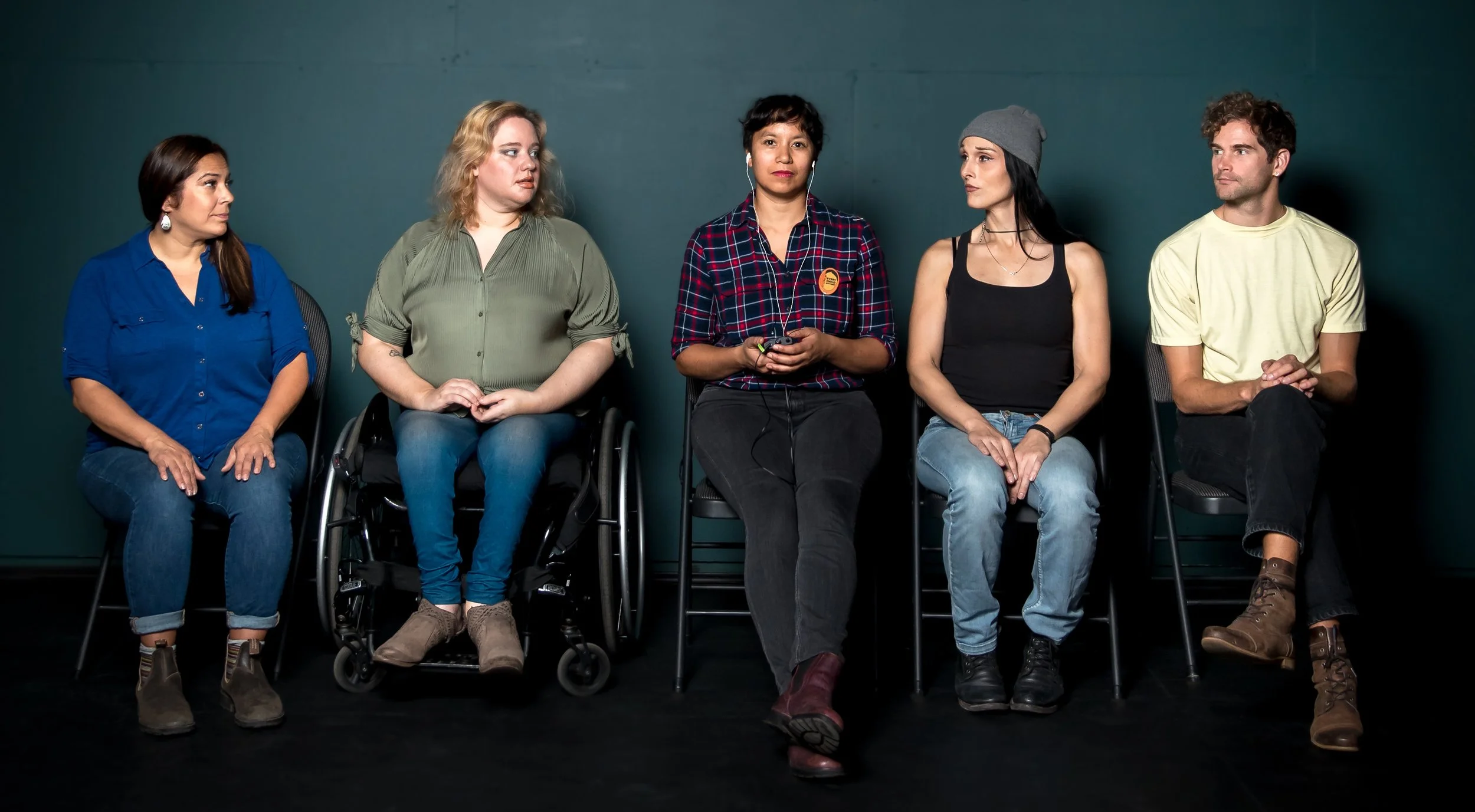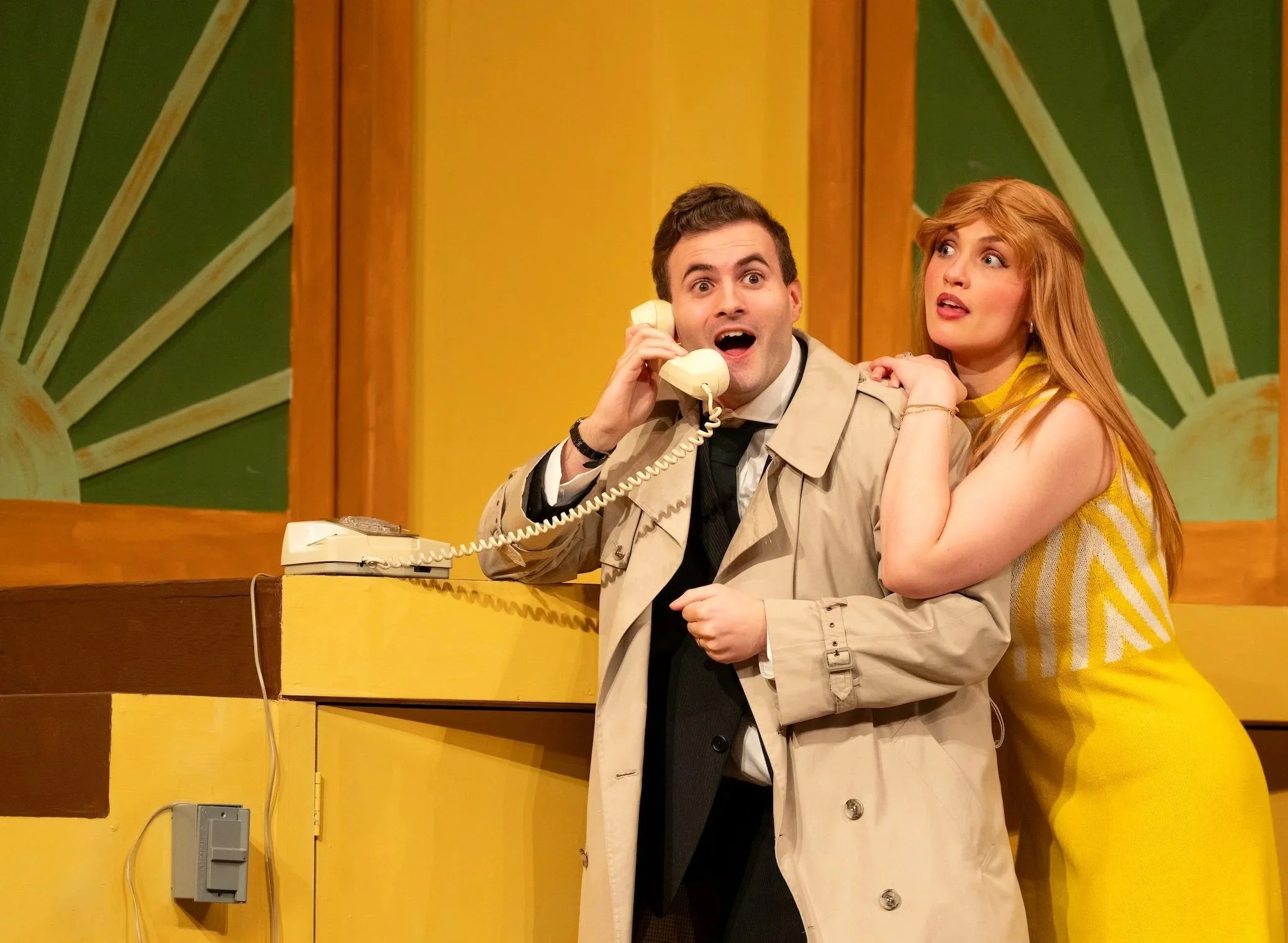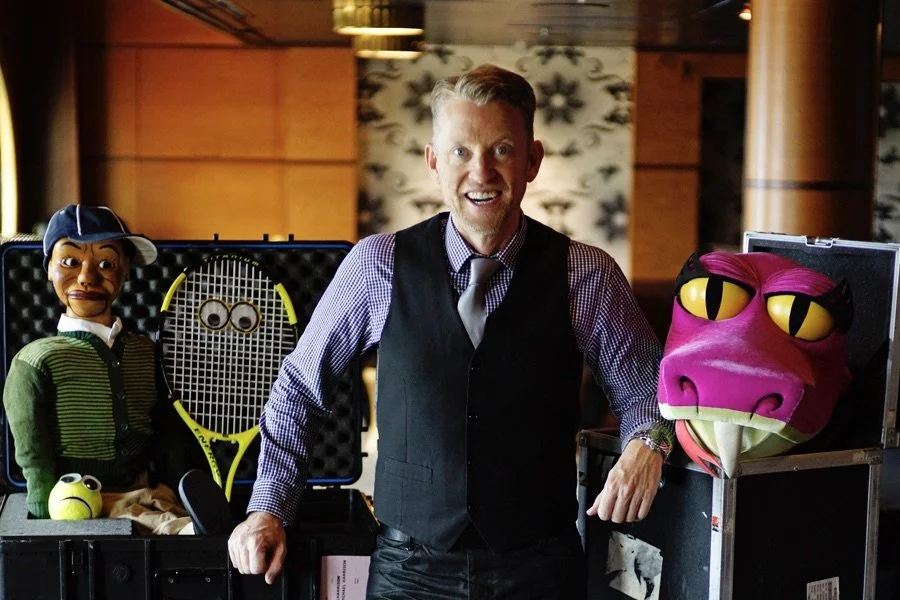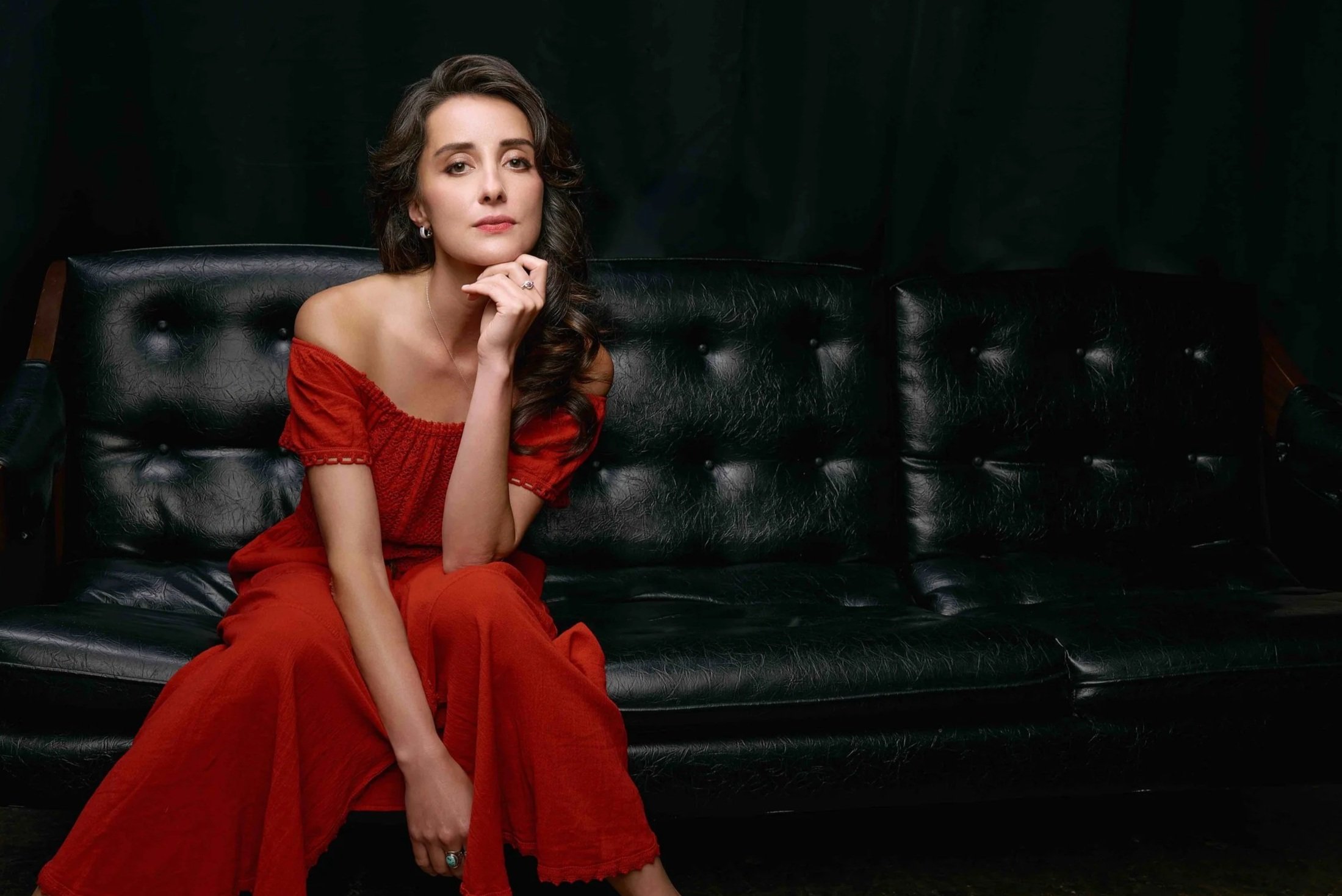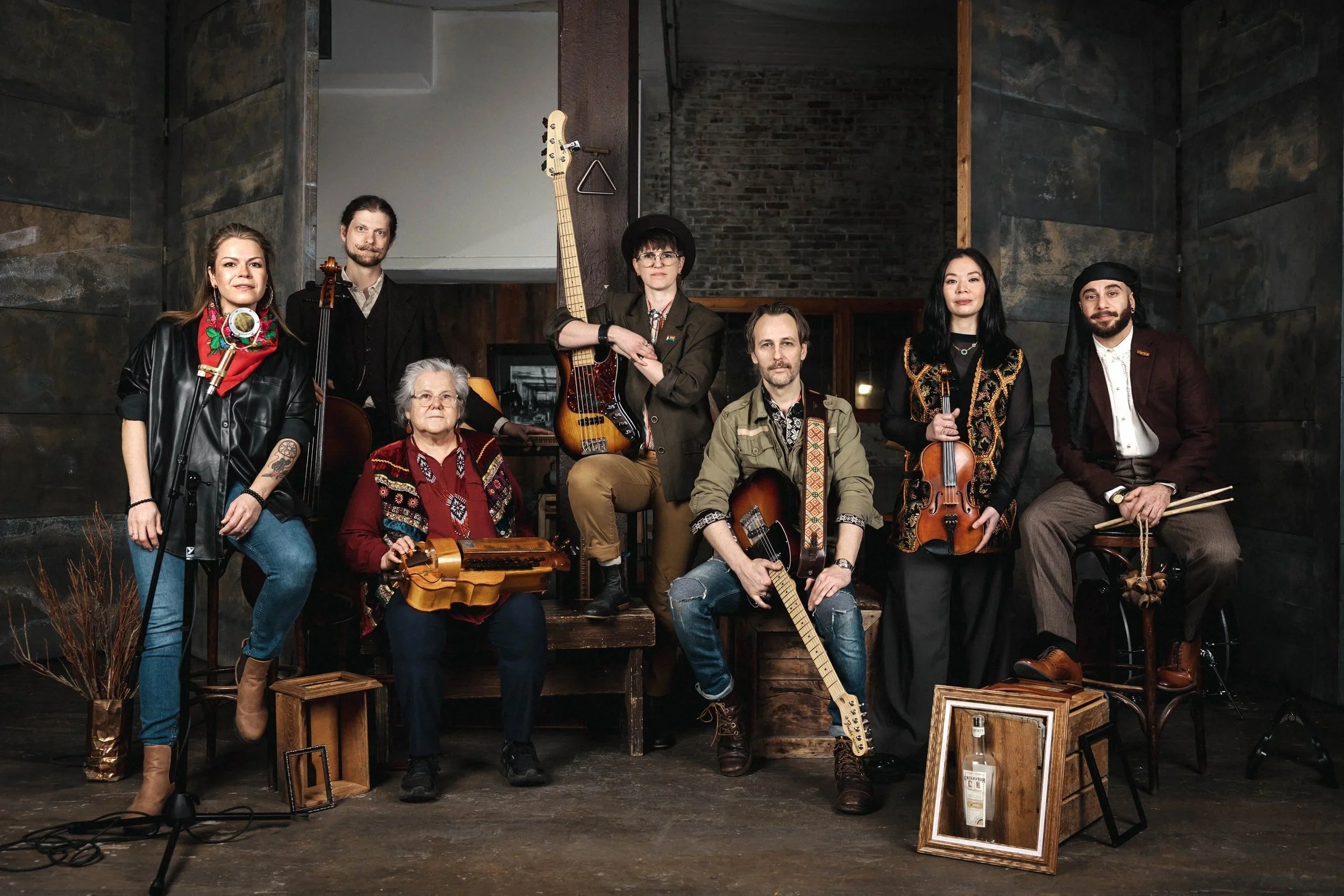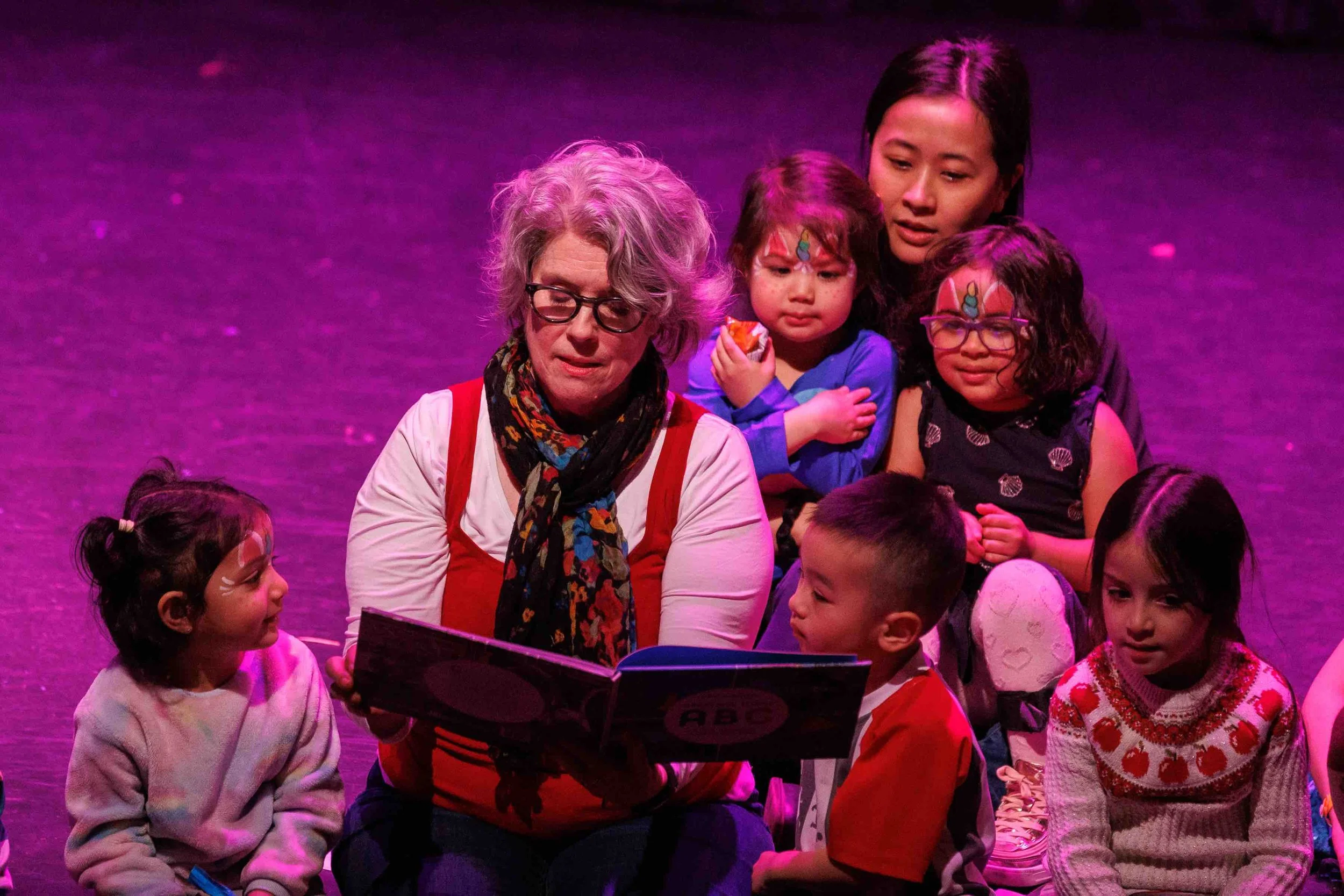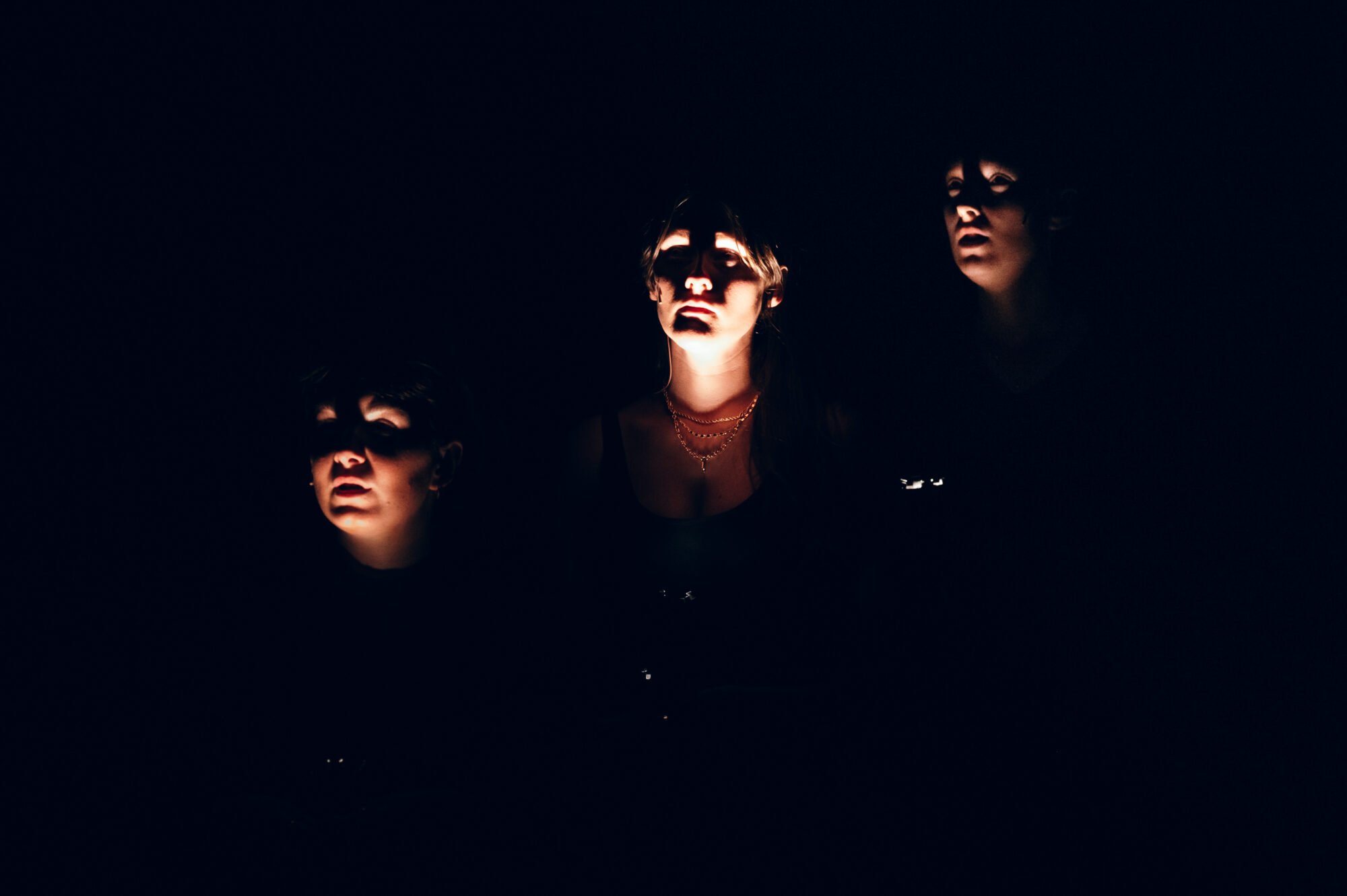Testimonial-based #whatnow goes beyond hashtags to tell human stories behind #MeToo
Alley Theatre project blends “headphone verbatim” docu-theatre with dance at Russian Hall, as part of the Downtown Eastside Heart of the City Festival
Alley Theatre presents #whatnow live at the Russian Hall from October 29 to November 7, in partnership with Good Night Out Vancouver as part of the Downtown Eastside Heart of the City Festival
IN 2006—THREE years before Twitter even started using hashtags—American activist Tarana Burke founded the “me too” movement. It was her way of forming a community of sexual-abuse survivors who could advocate for change and support. In 2017, of course, the term gained its hashtag in the wake of sexual-abuse allegations against Hollywood film producer Harvey Weinstein—creating a powerful virtual platform for women to express the extent of harassment and assault across society.
Now, a new show by Vancouver’s Alley Theatre tries to take the issue back out of the digital space and into the live, human realm. Based on hours upon hours of interviews with people across genders, sexual orientations, cultures, ages, and abilities, #whatnow is presented as “headphone verbatim” theatre: actors listen to the real, edited interviews via headphones, speaking along to the testimonials.
“It’s about wanting to bring it back into reality and into a room with people—and give voice to the voices that might have been overshadowed with the hashtag movement,” explains codirector Marisa Smith in a joint call with fellow helmer and dance artist Amber Funk Barton. “White cis women have so much privilege, and the more space you take up, the easier it is to have your voice heard. So it was important to me to include voices that may not have been as prominent.
“Tarana Burke said that survivors need to be heard and seen,” she adds, “and that’s kind of the crux of it.”
The result is a work the team describes as a multiperspective docu-theatre dance creation that Barton likens to a “moving conversation”. Because it’s a form of verbatim theatre, #whatnow not only retains the unfiltered, raw authenticity of the testimonials but it works to upend stereotypes around assault or harassment: the people performing don’t necessarily “match” the profiles of the people speaking their truths, and the interviewees’ culture and other demographic information aren’t revealed until late in the piece.
The core of the piece is the interviews, carefully carried out by Smith in 2018, with a second batch during late-pandemic 2021. “The piece was so rooted in reality that it was important to me that we bring in COVID and other movements like Black Lives Matter and the unmarked graves at residential schools,” she explains.
Editing the real-life stories to flow together, as well as being rigorous about consent in sharing them, has been a challenging job for Smith—but she gives full credit to her brave interview subjects.
“I just feel so honoured to have met so many amazingly beautiful people,” says Smith, who draws on her own experience as a sexual-assault survivor. “Maybe it’s just people who are ready to share a story that makes them vulnerable—they’ve already done that work, they’re like a whole human. And so the biggest challenge was not being able to share all of their work.”
“Every type of human you can think of is represented in these stories. There is not one type of person who tells these stories. You say, ‘Wow. This could be anybody,’” Funk adds.
For her part, Funk, known for her former contemporary-dance company the response., as well as theatre collaborations with groups from Search Party Productions to Studio 58, approached choreographing the work with extra care and subtlety.
“With the fact that it’s people’s stories, my biggest concern is doing something not respectful or not necessary,” she explains. “I just listened to the stories more—it became about capturing all these little gestures that happen when we’re physically telling a story. And I think trauma in the body manifests in how we hold our hands or how we pace a room.” The chairs the cast of actors sit on became a central prop in the performers’ movement: “It gave them something to push off of or to hold onto,” she says.
In all, the team works hard to create a safe and inviting space in Russian Hall. “We have these couches and lawn chairs and tables—it’s comfortable, with social distancing,” Smith explains.
The creation team wants to make #whatnow as welcoming as possible for people of all genders. A few gender-specific performances are offered during the run to allow for what Alley calls an “honest and supported environment for audiences to respond to the performance with other people of the gender they identify as most”. October 31 marks a performance for female-identifying audience members (including trans and non-binary); November 3 will be for trans and non-binary audience members; and November 4 will invite male-identifying audience members (including trans and non-binary).
“We’re on screens even more in the pandemic, and this offers a chance to come together in gentle moments—and even find funny moments,” Smith says. “It’s sitting in a room and have a warm experience while we sit in these truths—kind of an antidote to the divisive parts of the hashtag movement.” There are moments when characters reveal some of their favourite things—and that can as easily be shortcake as crocheting. An overall goal is to celebrate survivors—and make sure the survivors who attend don’t go home feeling worse.
Smith and Barton welcome anybody and everybody to experience the real stories #whatnow and carry on the conversations started by #MeToo, whether they choose to come to a gender-specific performance or not. “We’re in this time where all these truths are coming out,” Smith says. “I invite people to say, ‘I believe people can change and people can learn and grow.’”


